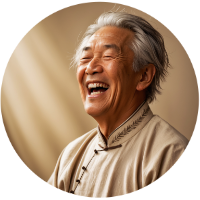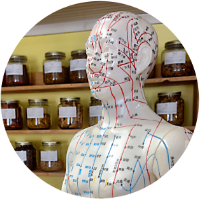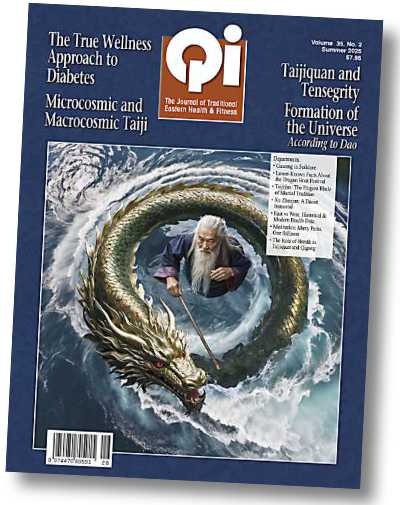Not Being Joyful Shortens Life
The Wisdom in 不乐损年,长愁养病
The Chinese idiom 不乐损年,长愁养病 (bù lè sǔn nián, cháng chóu yǎng bìng) warns us that “not being joyful shortens one’s years, and constant sorrow breeds illness.” Though poetic in tone, the message is practical and direct. It draws from centuries of Traditional Chinese Medicine (TCM) and classical philosophy, where emotional life and physical health are deeply intertwined.
Science Meets Tradition
- A 2012 study from Proceedings of the National Academy of Sciences showed that high levels of chronic stress can shorten telomeres, a biological marker of aging.
- According to the American Psychological Association, stress is a contributing factor in up to 90% of illnesses, including cardiovascular and autoimmune conditions.
- In TCM, emotional disorders are commonly listed as internal causes of disease, with emotional harmony considered a vital part of treatment.
- A meta-analysis published in Psychosomatic Medicine (2010) found that positive emotions are associated with lower risk of mortality, even after controlling for health behaviors.
In modern times, it's easy to dismiss this kind of phrase as moralizing or overly simplistic. But ancient Chinese physicians took the connection between emotions and the body very seriously. In the foundational TCM text Huangdi Neijing (黄帝内经), emotions are linked directly to the health of internal organs. Joy supports the Heart, but excessive joy scatters the mind. Worry and overthinking burden the Spleen. Long-term sorrow constrains the Lungs. These relationships aren't just metaphors—they're part of an energetic system where each emotion has a physiological impact.
The phrase 不乐损年 reflects the belief that joy, when it arises naturally, helps maintain the smooth flow of qi (气) and blood. Without this flow, the body’s systems weaken over time, reducing vitality and resilience. 长愁养病 refers to the idea that when worry becomes chronic, it acts as a kind of internal poison, fostering conditions that allow disease to take hold. Emotional stagnation often shows up physically in digestive issues, insomnia, fatigue, or even immune suppression.
Scientific research supports this traditional insight. Chronic stress has been shown to increase inflammation, elevate blood pressure, impair immune function, and even shorten telomeres—the protective caps on chromosomes that are associated with biological aging. Persistent negative emotional states have also been linked to higher risks of heart disease and metabolic disorders. While the language has changed, the conclusion is surprisingly similar: a troubled mind can exhaust the body.
But this idiom isn't suggesting we chase pleasure or force ourselves to smile. Instead, it encourages a life of balance. From a Confucian perspective, emotional restraint and inner cultivation are paths to peace. From a Daoist viewpoint, true joy arises from living in accordance with nature, free from the artificial pressures of ambition or anxiety. The Zhuangzi, for instance, praises the untroubled heart as the foundation of health and freedom.
In practical terms, the advice still holds. Finding time for laughter, practicing calm reflection, engaging in creative work or mindful movement like taijiquan, and avoiding over-attachment to things beyond one’s control are all strategies that support emotional health. TCM practitioners today often include stress-reduction techniques such as meditation, qigong, acupressure, and herbal therapies when treating chronic illness—acknowledging the emotional roots of many physical conditions.
The idiom 不乐损年,长愁养病 invites us to reflect not only on how we treat our bodies, but how we manage our inner world. Rather than ignoring sadness or pretending to be cheerful, it suggests that nurturing emotional ease is just as important as good food, exercise, or medicine. In both ancient and modern contexts, the lesson remains: cultivate joy, and life may reward you with strength and longevity.
Vocabulary Guide
- bù lè sǔn nián 不乐损年 – “Not being joyful shortens one’s years”
- cháng chóu yǎng bìng 长愁养病 – “Constant sorrow breeds illness”
- qì 气 – Vital energy; the animating force in TCM
- Huangdi Neijing 黄帝内经 – "The Yellow Emperor’s Inner Classic," foundational medical text in TCM
- taijiquan 太极拳 – A traditional Chinese martial art focused on internal balance, breathing, and movement
- qigong 气功 – A practice of cultivating and regulating vital energy through breath, posture, and intention
- Zhuangzi 庄子 – A classic Daoist text, also the name of its attributed author









